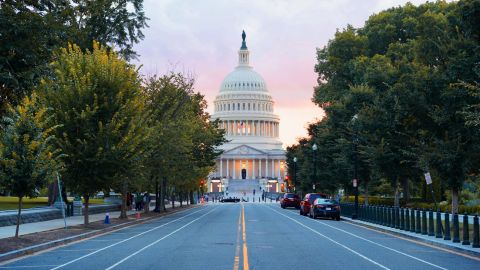Election and pandemic complicate appropriations
Even in what you might call normal times over the past 20 years, passing an annual appropriations package for the National Institutes of Health, National Science Foundation and other federal science funding agencies would be complicated. Last year, the NIH’s budget was completed and approved before the start of the fiscal year, but that was fairly unusual. Most years have been defined by continuing resolutions, threats of government shutdowns and spending caps.
This year, the normal challenges of a difficult political process are exacerbated by two complications. First, it is a presidential election year — and the appropriations process historically stalls in election season, as the entire U.S. House of Representatives and one-third of the U.S. Senate are up for reelection. Second, the COVID-19 pandemic has changed how Congress operates. (It has already passed multiple emergency supplemental spending bills.) All this results in an appropriations season like we’ve never seen before.
To clarify the challenges and our expectations and hopes for appropriations season, below I've compiled a short list of questions and answers.
Are appropriations going to happen this year?
Yes. The federal budget is reset on an annual basis, and Congress has no mechanism that would allow it to automatically reload funding for federal agencies or to increase spending on important programs. At a minimum, Congress will have to pass a continuing resolution to temporarily keep funding at the current level.
Is there a chance that the NIH’s budget increases continue in FY2021?
Yes, there is a great chance that will happen. The NIH has been one of very few agencies to benefit from strong bipartisan and bicameral support, and that has resulted in billions of dollars in increases to the agency's budget over the past several years. Before and during the COVID-19 pandemic, Republican and Democratic leaders have signaled to advocates that increases are likely to continue into this next fiscal year.
Aren’t there spending caps that limit discretionary spending?
FY21 will be the final year of the 10-year stretch of the Budget Control Act, a law that established limits to federal spending. Last year, a two-year deal was reached to raise the spending caps for FY20 and FY21. The agreed-upon spending level for FY21 increases domestic discretionary spending by $5 billion over last year’s levels. That is not a big increase (less than 1%), but, as I said earlier, there are indications that some of that would go toward supporting the NIH.
How is COVID-19 pandemic funding affecting appropriations?
Trillions of dollars have been provided to the NIH in response to the pandemic, with a focus on increasing testing capacity, vaccine development, and basic research into the SARS-COV-2 virus. That funding is specifically marked for COVID-19 research, and most of it has a 2024 expiration date. Appropriators have been clear that, while pandemic response and research on SARS-COV-2 is critically important at this time, they respect and understand the important work done by the NIH under normal circumstances. Accordingly, all indications point to an appropriations process that respects the emergency funding but does not allow the NIH's baseline appropriation to be affected going forward.
What comes next in the process?
Appropriations committees have held hearings on NIH funding, and the House appropriations committee has released an aggressive schedule for July. Nita Lowey, D-N.Y., who heads the appropriations committee, has announced that the appropriations subcommittees will markup bills in the first two weeks of July, and the full House will debate and vote on 12 appropriations bills before the end of July. This process is expected to be relatively partisan, with passage likely to happen with party-line votes. By comparison, the Senate has not released its schedule for the process. Congress has until Sept. 30 to pass spending bills or a continuing resolution.
Enjoy reading ASBMB Today?
Become a member to receive the print edition four times a year and the digital edition monthly.
Learn moreGet the latest from ASBMB Today
Enter your email address, and we’ll send you a weekly email with recent articles, interviews and more.
Latest in Policy
Policy highlights or most popular articles

Councilors advocate for science on Capitol Hill
ASBMB Councilors meet with their elected officials to advocate for basic scientific research funding and training the next generation of scientists.

Hope for a cure hangs on research
Amid drastic proposed cuts to biomedical research, rare disease families like Hailey Adkisson’s fight for survival and hope. Without funding, science can’t “catch up” to help the patients who need it most.

Supporting science through advocacy and community building
ASBMB calls on scientists to take action as funding cuts and policy shifts threaten the U.S. research enterprise, emphasizing the power of community advocacy and persistence in protecting the future of science.

Seven steps to advocating in your home state
Find out how to schedule, prepare for and conduct a productive district office meeting to communicate the importance of fundamental scientific research funding to your representatives.

ASBMB members call for funding and agency support amidst uncertainty
In 60 meetings on Capitol Hill, scientists urge legislators to reaffirm support for scientific innovation

Embrace your neurodivergence and flourish in college
This guide offers practical advice on setting yourself up for success — learn how to leverage campus resources, work with professors and embrace your strengths.

